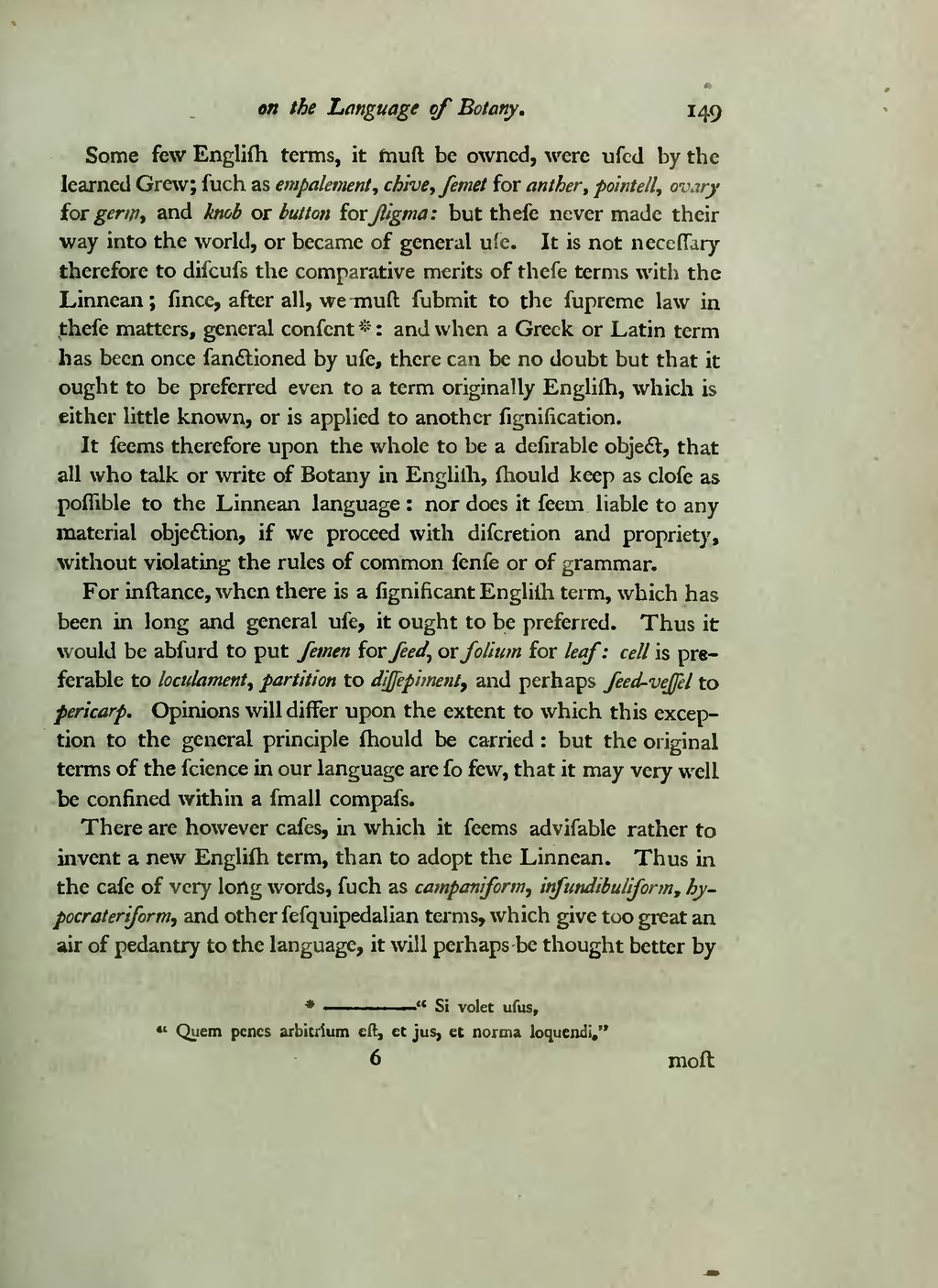Some few English terms, it must be owned, were used by the learned Grew; such as empalement, chive, semet for anther, pointell, ovary for germ, and knob or button for stigma: but these never made their way into the world, or became of general use. It is not necessary therefore to discuss the comparative merits of these terms with the Linnean; since, after all, we must submit to the supreme law in these matters, general consent[1]: and when a Greek or Latin term has been once sanctioned by use, there can be no doubt but that it ought to be preferred even to a term originally English, which is either little known, or is applied to another signification.
It seems therefore upon the whole to be a desirable object, that all who talk or write of Botany in English, should keep as close as possible to the Linnean language: nor does it seem liable to any material objection, if we proceed with discretion and propriety, without violating the rules of common sense or of grammar.
For instance, when there is a significant English term, which has been in long and general use, it ought to be preferred. Thus it would be absurd to put semen for seed, or folium for leaf: cell is preferable to loculament, partition to dissepiment, and perhaps seed-vessel to pericarp. Opinions will differ upon the extent to which this exception to the general principle should be carried: but the original terms of the science in our language are so few, that it may very well be confined within a small compass.
There are however cases, in which it seems advisable rather to invent a new English term, than to adopt the Linnean. Thus in the case of very long words, such as campaniform, infundibuliform hypocrateriform, and other sesquipedalian terms, which give too great an air of pedantry to the language, it will perhaps be thought better by
